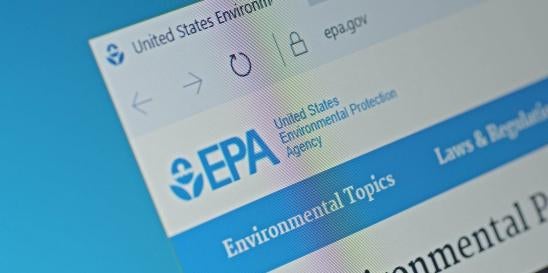The EPA Office of Inspector General’s (OIG) February 15, 2024, report on EPA’s practices in collecting, retaining, and producing criminal discovery materials in environmental cases found that EPA’s special agents largely adhered to requirements embedded in the due process clauses of the U.S. Constitution, the Brady doctrine, the Jencks Act, and the Federal Rules of Criminal Procedure. While the OIG identified some instances where agents deviated from procedures established by the Office of Criminal Enforcement, Forensics and Training (OCEFT) that could impact discovery during criminal proceedings, such as the use of a personal camera during an investigation, they did not amount to violations of applicable discovery requirements. Based on OIG’s evaluation, OCEFT was advised to review its policies and procedures to determine whether they required updating or whether the establishment of best practices was necessary. Alternatively, OIG recommended periodic training of EPA inspectors and investigators who may support the Government’s prosecution team.
Within EPA, OCEFT sits within the Office of Enforcement and Compliance Assurance (OECA), and both investigate violations of environmental laws and provide technical and forensic services for broader civil and criminal investigations. OCEFT is divided into three divisions: (i) the Criminal Investigation Division, (ii) the Legal Counsel Division, and (iii) the National Enforcement Investigations Center. In a federal investigation of potential environmental crimes, the EPA is considered part of the Government’s prosecution team and is primarily responsible for the investigation component of the process. OCEFT special agents work with the EPA and attorneys at the DOJ and in U.S. Attorney’s Offices. Individual agents are required to provide prosecutors with all potentially discoverable information for prosecutors to evaluate their discovery obligations. While special agents do not make those disclosure determinations, successful prosecutions require that all evidence has been collected in accordance with applicable constitutional and procedural requirements.
OIG’s assessment of OCEFT procedures focused on their application in individual cases to ensure that the Government met its discovery obligations when prosecuting environmental crimes. OIG found no instance where OCEFT agents did not adhere to criminal discovery requirements. It did note, however, circumstances in which agents did not fully apprehend investigative policies and procedures and would benefit from additional training.
The OIG report provides a good overview of EPA’s criminal enforcement procedures and the federal criminal process, generally, as it applies to environmental prosecutions. With OECA head David Uhlmann’s recent Senate confirmation, over two years following his nomination, the EPA now has all of its resources in place to address the agency’s high-priority concerns, including PFAS contamination.



 i
i


